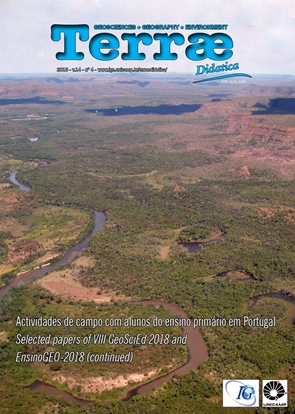Resumo
Students are regularly confronted with ethical and environmental issues of a global, regional or local nature which require knowledge of the geosciences to solve. Having the skills to engage, explore and evaluate these problems enhances student’s capacity for creative, real-world problem solving. At the Australian Science and Mathematics School, a Challenge Based Learning approach has been used across a range of learning programs including those with a focus on geoscience. Challenge Based Learning in the context of this paper is defined as a method of teaching and learning which allows students to engage in learning goals through meaningful contexts. An unfamiliar ‘ill-structured’ problem is presented to the students by the teacher and the students are required to determine for themselves how they will go about solving the problem. This process occurs through small groups of students working collaboratively and allows sharing their prior knowledge, skills and understandings to identify gaps in their collective understanding as they attempt to offer solutions to the problem. The example chosen is based around a problem requiring significant time in the field where secondary students come to know and understand the problem in greater depth while developing scientific field investigation skills.
Referências
Hiebert J., Wearne D. 2003. Developing understanding through problem solving. In H.L. Schoen, R.I. Charles eds. 2003. Teaching mathematics through problem solving: Grades 6- 12. Reston, VA: NCTM.
Tan O.S. 2004. Editorial. Special issue: Challenges of problem-based learning. Innovations in Education and Teaching International, 41(2):123-124.
A Terrae Didatica utiliza a licença do Creative Commons (CC), preservando assim, a integridade dos artigos em ambiente de acesso aberto, em que:
- A publicação se reserva o direito de efetuar, nos originais, alterações de ordem normativa, ortográfica e gramatical, com vistas a manter o padrão culto da língua, respeitando, porém, o estilo dos autores;
- Os originais não serão devolvidos aos autores;
- Os autores mantêm os direitos totais sobre seus trabalhos publicados na Terrae Didatica, ficando sua reimpressão total ou parcial, depósito ou republicação sujeita à indicação de primeira publicação na revista, por meio da licença CC-BY;
- Deve ser consignada a fonte de publicação original;
- As opiniões emitidas pelos autores dos artigos são de sua exclusiva responsabilidade.

